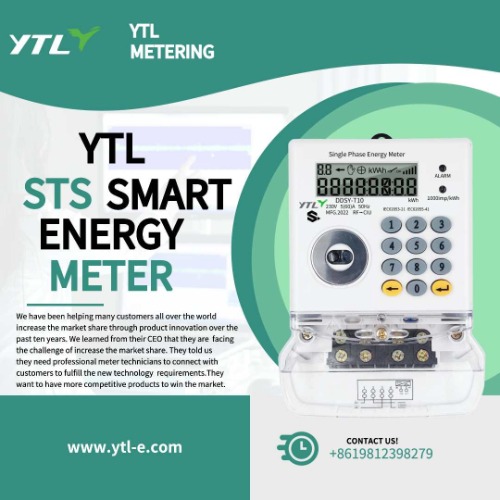Smart meter for Smart home
With the rapid development of technology, smart homes have become an increasingly popular concept in recent years. Smart homes are designed to make our lives more convenient and comfortable by incorporating various technological devices and systems. One of the key components of a smart home is the smart meter, which is designed to provide accurate and reliable energy consumption data. In this article, we will explore how smart meters are revolutionizing the way we manage energy in our homes.
According to the installation method, energy meters can be divided into, suspention energy meter, din rail energy meter, panel energy meter, etc..

A smart meter is an electronic device that records the amount of electricity consumed by a household. Unlike traditional meters, which require manual readings, smart meters can transmit data wirelessly to the energy supplier, providing real-time information about energy usage. This means that homeowners can monitor their energy consumption in real-time, allowing them to make informed decisions about their energy usage.
Smart meters are also designed to be compatible with other smart devices in the home, such as smart thermostats and smart lighting systems. By integrating these devices, homeowners can create a fully automated and energy-efficient home. For example, a smart thermostat can adjust the temperature in the home based on occupancy and weather conditions, while a smart lighting system can turn off lights in unused rooms.
One of the key benefits of smart meters is their ability to help homeowners save money on their energy bills. By monitoring energy usage in real-time, homeowners can identify areas where they are consuming too much energy and make changes to reduce their consumption. This can include simple changes such as turning off appliances when not in use or investing in energy-efficient appliances.
Smart meters also provide benefits to energy suppliers, who can use the data provided by the meters to better manage the energy grid. By having real-time information about energy usage, suppliers can identify areas of high demand and adjust their energy production accordingly. This helps to reduce the risk of blackouts and ensures a more stable and reliable energy supply.
In addition to their practical benefits, smart meters are also helping to reduce our impact on the environment. By reducing energy consumption, homeowners can reduce their carbon footprint and help to combat climate change. This is particularly important as the world becomes increasingly reliant on energy-intensive technologies. Overall, smart meters are revolutionizing the way we manage energy in our homes. By providing real-time data about energy consumption, homeowners can make informed decisions about their energy usage and create a more energy-efficient home. As technology continues to develop, we can expect to see even more innovations in the field of smart homes, and smart meters will play a vital role in this evolution.
Overall, smart meters are revolutionizing the way we manage energy in our homes. By providing real-time data about energy consumption, homeowners can make informed decisions about their energy usage and create a more energy-efficient home. As technology continues to develop, we can expect to see even more innovations in the field of smart homes, and smart meters will play a vital role in this evolution.

 English
English 中文简体
中文简体



.jpg?imageView2/2/w/500/h/500/format/png/q/100)






.jpg?imageView2/2/w/500/h/500/format/png/q/100)


